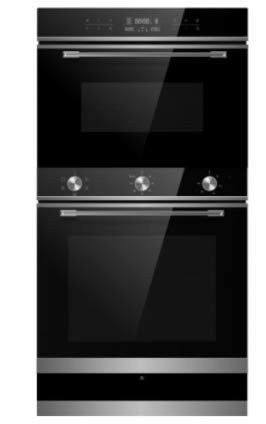Understanding Cookers and Hobs: A Comprehensive Guide
Cooking is an integral aspect of life, and the evolution of kitchen appliances plays a substantial function in how efficiently and effectively individuals prepare their meals. Among these appliances, cookers and hobs are 2 of the most necessary instruments discovered in contemporary kitchens. Fan Ovens For Sale looks into the distinctions between cookers and hobs, examines their different types, and provides insights on their features, upkeep, and selection procedure.
What are Cookers and Hobs?
Cookers
Cookers are extensive kitchen home appliances created for cooking tasks, normally integrating an oven and a hob. They are available in different setups and types, dealing with diverse cooking needs and preferences.
Hobs
Hobs, on the other hand, are more focused devices primarily utilized for boiling, frying, and other stovetop cooking approaches. Hobs can be standalone units or an integrated part of larger cookers.
| Function | Cookers | Hobs |
|---|---|---|
| Function | Combines oven and hob | Stovetop cooking just |
| Style | All-in-one unit | Separate unit or integrated |
| Types | Electric, gas, double fuel | Gas, electric, induction |
| Setup | Enables more versatility | Built into the countertop |
| Rate Range | Generally higher | Varies extensively |
Types of Cookers
1. Electric Cookers
Electric cookers use electricity as their main power source. They typically include a built-in oven and several cooking zones on the hob.
Benefits:
- Even heat circulation
- Available in numerous designs (e.g., freestanding, integrated)
2. Gas Cookers
Gas cookers work on natural gas or liquefied petroleum gas (LPG). They provide instant heat control, making them a preferred amongst professional chefs.
Advantages:
- Instant heat adjustments
- More economical functional expenses
3. Dual Fuel Cookers
Double fuel cookers integrate the heat of gas with the effectiveness of electric ovens. This setup enables the very best of both worlds, providing control and constant results.
Benefits:
- Flexible cooking choices
- Precise control over stovetop cooking and baking
4. Variety Cookers
Range cookers are larger and more powerful than standard cookers, including numerous ovens and hobs for extensive cooking tasks.
Advantages:
- Ideal for big households or cooking for events
- Provides different cooking alternatives in one appliance
Kinds of Hobs
1. Gas Hobs
Gas hobs are favored for their fast heating and strong flame, making them outstanding for burning and stir-frying.
Benefits:
- Instant heat and control
- Suitable with any kind of pots and pans
2. Electric Hobs
Electric hobs warm up utilizing electric coils or glass-ceramic surface areas, supplying a modern appearance and effective cooking.
Benefits:
- Easier to clean up
- Uniform surface appropriate for numerous pots and pans
3. Induction Hobs
Induction hobs utilize magnetic fields to heat pots and pans directly, using fast and energy-efficient cooking.
Advantages:
- Safe (cool surface area after removing pots and pans)
- Energy-efficient and exact
4. Strong Plate Hobs
These standard hobs use strong electric plates that warm up slowly.
Advantages:
- Rugged and durable
- Generally more inexpensive than other types
Key Features to Consider
When selecting a cooker or hob, numerous functions need to be taken into account:
- Size and Space: Consider the size of your kitchen and the amount of office required.
- Cooking Style: Choose based on choice-- gas for control, induction for performance, etc.
- Efficiency Ratings: Look for energy-efficient designs to lower utility bills.
- Ease of Cleaning: Smooth surface areas facilitate easy upkeep.
- Safety Features: Automatic shutoff, flame failure devices, and kid locks improve security.
Maintenance Tips
Maintaining cookers and hobs prolongs their life expectancy and makes sure safe operations.
- Routine Cleaning: Wipe down surface areas after usage to avoid buildup.
- Examine Seals: Check oven door seals routinely for wear and tear to preserve efficiency.
- Service Regularly: Schedule professional maintenance at least once a year.
- Suitable Cookware: Use cookware appropriate for your hob type to prevent damage.
Often Asked Questions (FAQs)
What is the difference between a cooker and a hob?
A cooker integrates an oven and hob in one unit, while a hob is usually a standalone appliance for stovetop cooking.
Do I require an expert to set up a gas cooker or hob?
Yes, professional installation is recommended for gas home appliances to guarantee safety and compliance with local regulations.
Can I use any kind of pots and pans on induction hobs?
Induction hobs require magnetic cookware. Stainless-steel or cast iron pots work best. Non-magnetic materials will not warm up.
Are electric cookers more energy-efficient than gas cookers?
While both have benefits, electric cookers tend to be more energy-efficient general, especially with modern, high-efficiency models.
How typically should I clean my cooker or hob?
It is best to clean them after each usage and carry out a thorough cleansing weekly to avoid buildup and residue.
Comprehending the differences, functions, types, and maintenance tips for cookers and hobs is essential for any home cook. By selecting the best home appliance suited to their culinary requirements, users can enhance their cooking experience, making meal preparation an efficient and pleasant task. Whether selecting the instantaneous control of gas or the smooth efficiency of induction, picking the suitable cooker or hob can cause a significantly boosted kitchen experience.

